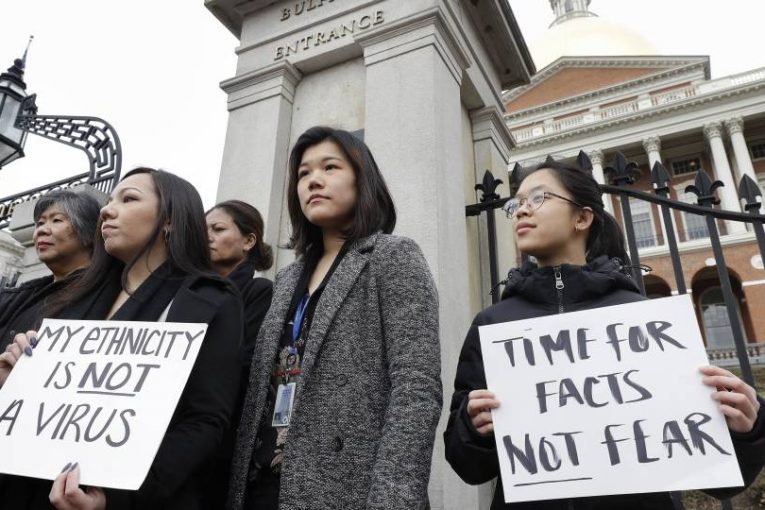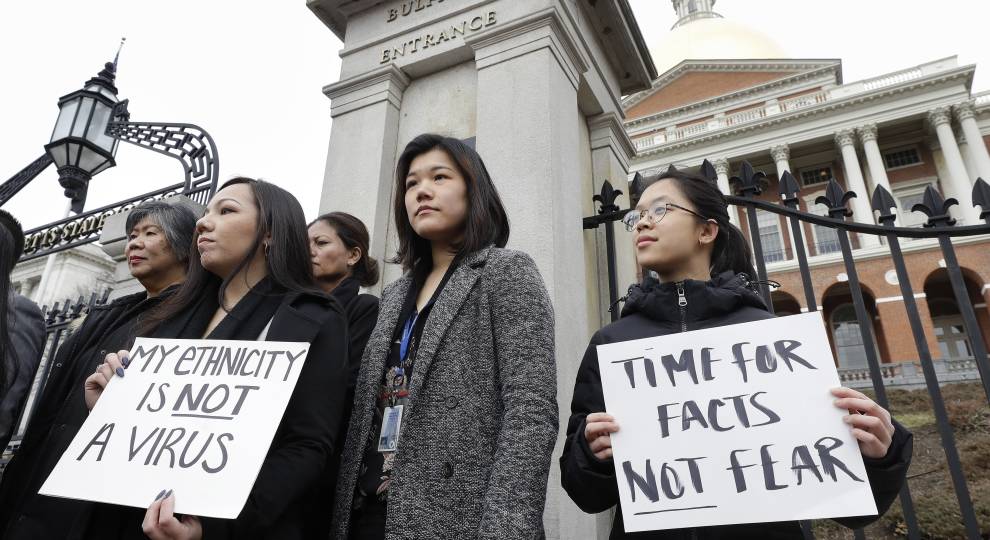

By Lovepreet Dhinsa
CALIFORNIA – In the wake of continuous resurgence of anti-Asian hate crimes, CA state legislators allocated $1.4 million towards tracking such crimes.
In the Bay Area especially, there has been an extreme increase in the number of hate crimes, violence, and discrimination against Asian-Americans, and Chinatowns in both San Francisco and Oakland have turned to their communities for support, as more elders have been targeted for attack.
The case of an 84-year-old Thai man, Vicha Ratanapakdee in January shook the Asian community in San Francisco Anza Vista neighborhood, where a man ran across the street and shoved Ratanapakdee to the ground.
It was described by San Francisco District Attorney Chesa Boudin as a “horrific, senseless attack.”
Boudin issued an announcement on his website against these incidents, in which he stated that “these horrific crimes cause seniors and all of us to feel unsafe,” and reiterated his and the office’s goals: “violent crimes are my top priority. We will hold the people who committed these crimes accountable: we will prosecute them for murder.”
And there’s the case of Jack Palladino, who was a private investigator in Boudin’s office – Palladino was attacked right outside his home.
Boudin is heavily prosecuting both cases.
Last week, California lawmakers approved legislation allocating $1.4 million to track incidents specifically centered around anti-Asian hate.
Earlier this month, California state lawmakers, Dave Min, Evan Low, Steven Choi, and the rest of the Asian Pacific Islander Legislative Caucus convened to condemn these hate crimes, which was later supported with action by Assemblymember Phil Ting.
Assemblymember Ting, the Budget Committee Chair, introduced the bill known as AB 85, in response to the hate crimes the Asian and Pacific Islander community is facing in the midst of the Covid-19 pandemic.
In the distribution of funds towards this case, Ting explained that this would enable the government to carefully track the incidents and conduct more research, as he believed that was a widely spread culture of underreporting.
California legislator Evan Low attributed the underreporting to “a notion of a model minority,” in which “you may not see them marching out on the street crying for help, but that’s the anguish that we collectively feel.”
Ting further stated that with a persistent culture of underreporting, the magnitude of the problem is minimized so further research would help strengthen the community and make better-informed decisions.
Ting released a statement in which Senator Richard Pan (D-Sacramento) (Chair of the Asian Pacific Islander Legislative Caucus) stated that “the history of the Asian American Pacific Islander community in the U.S. has been punctuated by times of racism and hate including the Chinese Exclusion Act, the unjust incarceration of Japanese Americans in World War II, the murder of Vincent Chin, hate crimes against Sikhs after 9/11, and most recently, attacks and murder of API seniors incited by racist rhetoric about the COVID pandemic.”
California Gov. Gavin Newsom officially signed the bill into law last Tuesday.
The state funds will go directly towards an online self-reporting program, called Stop AAPI Hate, which was launched approximately a year ago on March 19, 2020 in the midst of the COVID-19 pandemic.
The program was created by various advocacy groups based in San Francisco, including the Asian Pacific Planning and Policy Council (A3PCON), Chinese for Affirmative Action (CAA), and the Asian American Studies Department of San Francisco State University.
According to the self-reporting program’s website, the program has a five-pronged approach to: “serve as the leading aggressor of anti-Asian hate incidents, offer multilingual resources for impacted community members, provide technical assistance from rapid response to preventative measures, support community-based safety measures and restorative justice efforts, and advocate for local, state, and national policies that reinforces human rights and civil rights protections.”
For specific questions or information about the program, the leaders of the program have provided a contact email, which is at community@stopaapihate.org.
There have already been 2,583 self-reported hate crimes submitted through the program – 40 percent of the incidents occurred in California.
 Lovepreet Dhinsa is a junior undergraduate student at the University of San Francisco, pursuing her bachelor’s degree in Politics with a minor in Legal Studies. She has a passion for criminal defense law, and strives to go to law school to fight for indigent clients. As such, she is also involved in her university’s mock trial program and student government.
Lovepreet Dhinsa is a junior undergraduate student at the University of San Francisco, pursuing her bachelor’s degree in Politics with a minor in Legal Studies. She has a passion for criminal defense law, and strives to go to law school to fight for indigent clients. As such, she is also involved in her university’s mock trial program and student government.
To sign up for our new newsletter – Everyday Injustice – https://tinyurl.com/yyultcf9
Support our work – to become a sustaining at $5 – $10- $25 per month hit the link:

Thank you for not mentioning D_____ T____ .
There’s a fantastic article on this subject on NBC News Asian America bureau by Kimmy Yam and Sakshi Venkatraman:
“Violence against Asian Americans and why ‘hate crime’ should be used carefully
Social media posts have conflated violence against people who are Asian American with hate crimes against the community at large, tying the crimes to pandemic racism.”
https://www.nbcnews.com/news/asian-america/violence-against-asian-americans-why-hate-crime-should-be-used-n1258793
This article gives many perspectives. This article restored my faith in journalism. This is how all investigative articles used to be written, and it’s quite refreshing to read this instead of the spoon-fed, partisan(or not), blog-like, opinionated blather that has infested even mainstream journalism like a cancer.
The article doesn’t deny there is a problem or an increase in violence, and it shows the issues with the term ‘hate crime’, with assuming all the violence in racially motivated, how statistics have been interpreted and misused, and long standing issues between communities of color.
This is really worth reading if you have an interest in the subject of the current wave of Anti-Asian violence.